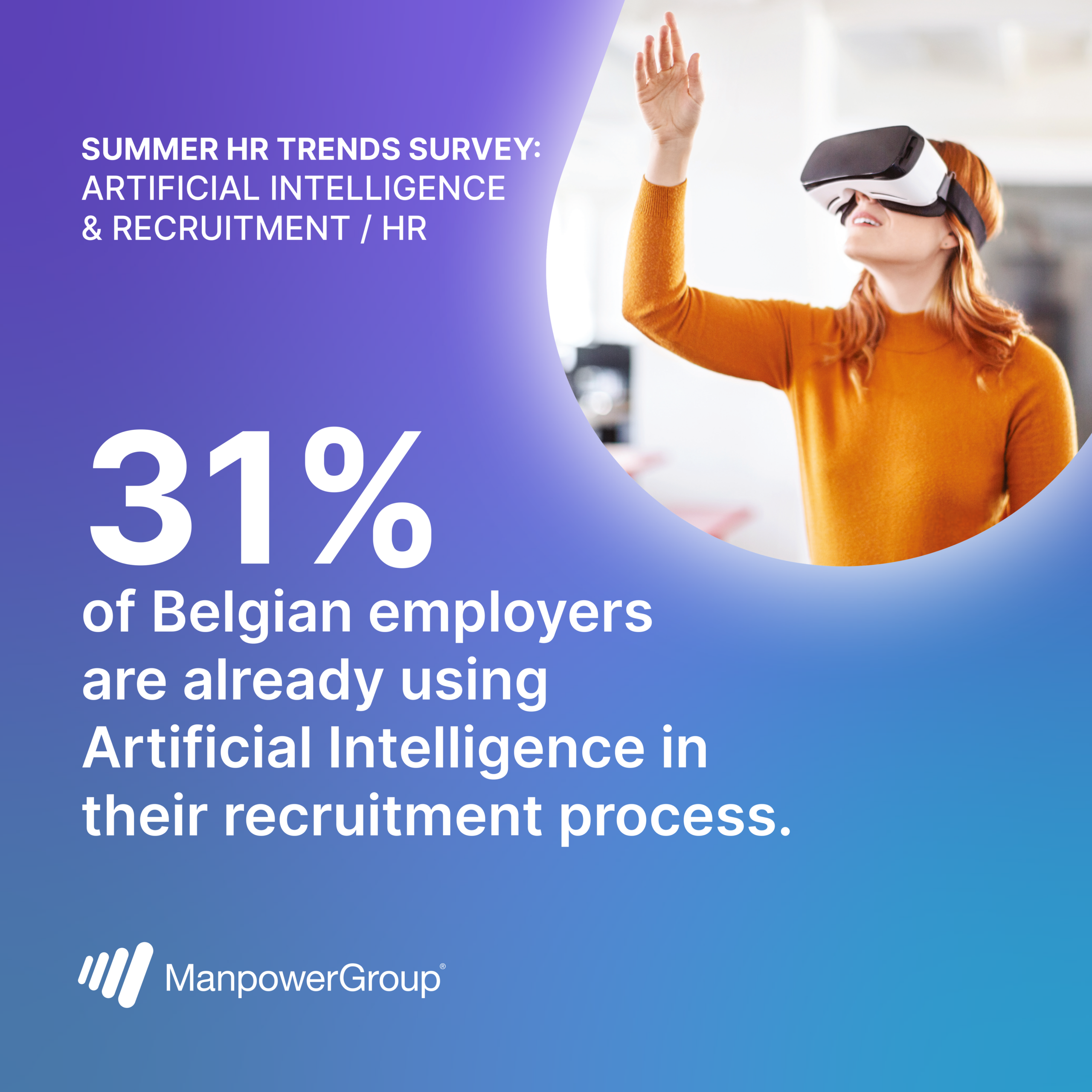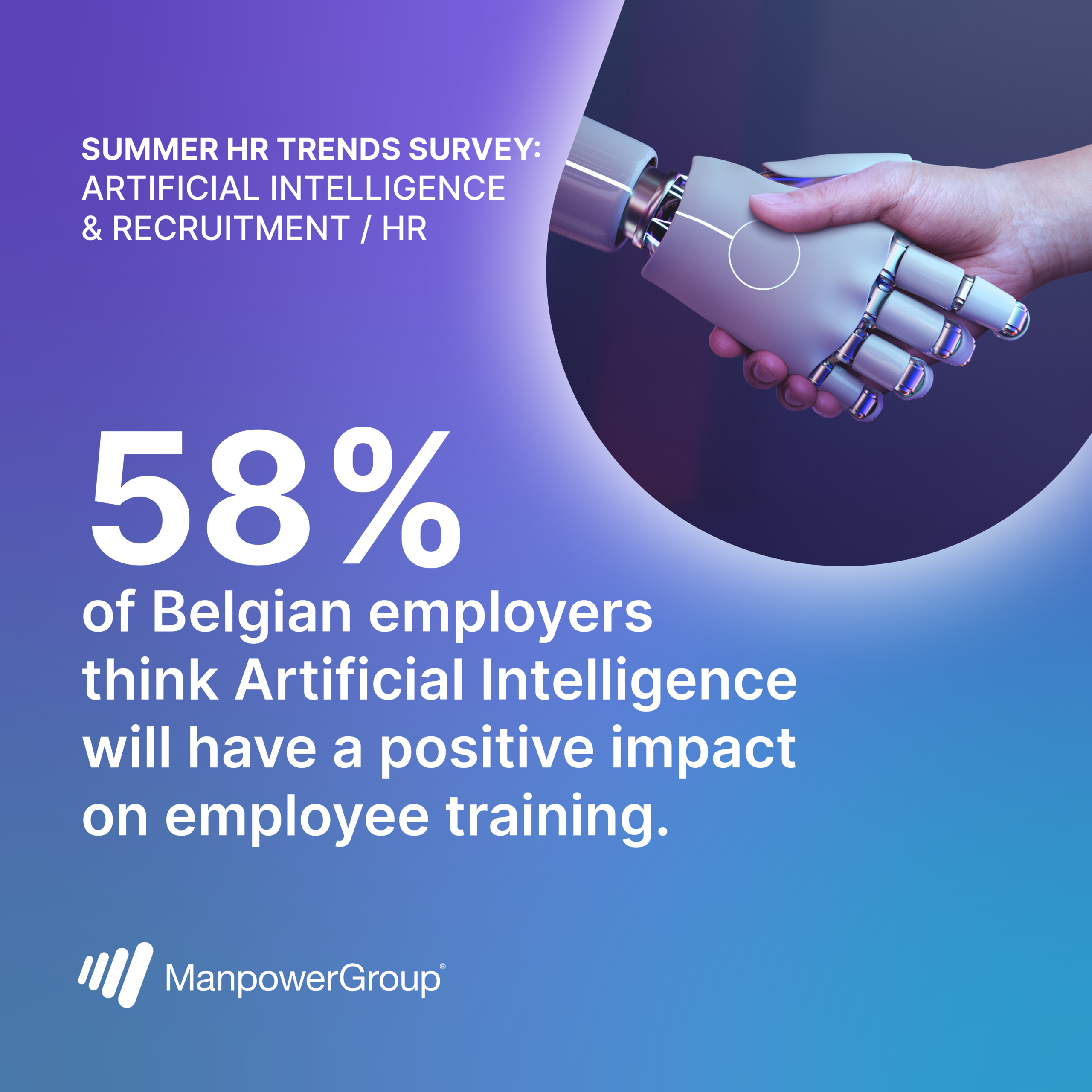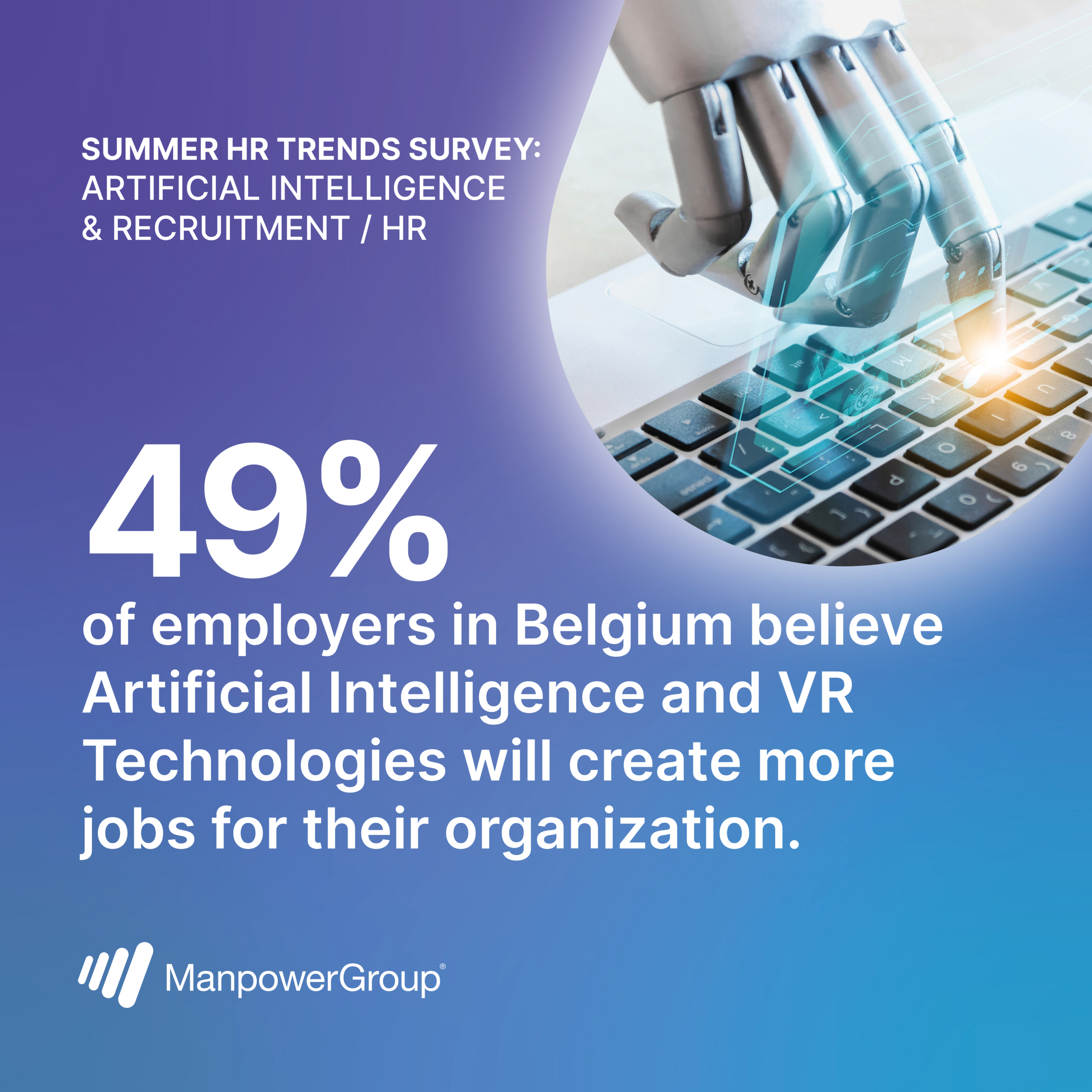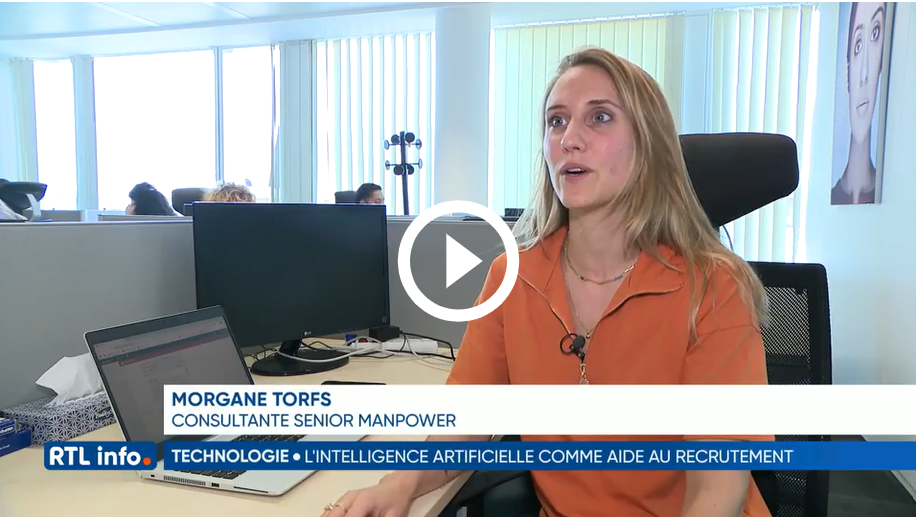31% of Belgian companies already use artificial intelligence within their recruitment process

ManpowerGroup to unveil the latest HR trends and innovations at VivaTech 2023
13 June 2023
More than one in two Belgian employers considers gaming skills during the hiring process
18 August 2023According to a ManpowerGroup survey, Belgian employers believe that artificial intelligence will have a positive impact on their HR management without posing a threat to employment.
As the world of work is being disrupted by the arrival of generative artificial intelligence (such as ChatGPT), a study by ManpowerGroup reveals how the adoption of new technologies is transforming recruitment practices and human resource management in general. The results of the first part of ManpowerGroup’s ‘Summer HR Trends Survey’ show that this coexistence between humans and robots is going quite well in Belgium, and employers seem to have embraced innovation.
“This new survey by ManpowerGroup confirms the findings of our study, ‘The New Human Age’, presented last January at the World Economic Forum in Davos, namely that it is the combination of technology and humans that brings progress,“ explains Sébastien Delfosse, Managing Director of ManpowerGroup BeLux. “Today, although the number of tasks performed by artificial intelligence continues to grow in all areas, the human element remains essential in managing companies, and this is perhaps even more true in the field of HR. Belgian employers have recognized the advantages they can gain from increased use of technology, and only 15% of them believe that artificial intelligence will have a negative impact on the size of their workforce.”
Artificial Intelligence and ChatGPT at the heart of recruitment processes
The survey shows that a growing number of companies in Belgium are using AI for recruitment purposes or plan to do so in the near future: 10% of the 510 employers surveyed in Belgium already declare they are fully leveraging these technologies within their recruitment processes (‘Early Adopters’), 21% have recently adopted elements in their hiring procedures (‘Current Adopters’), 18% plan to adopt this technology in the next 12 months, and 14% within the next 3 years.
However, 18% of Belgian companies have not yet considered the use of AI to support their hiring process, only 7% reject this type of tool and do not wish to integrate it within 3 years. 12% did not take a position.
Furthermore, among the Belgian companies surveyed:
- 28% use conversational AIs like ChatGPT;
- 29% use Machine Learning (ML) – statistical/automatic learning to predict increasingly accurate results from data;
- 26% use virtual reality/metaverse (VR).
In addition to algorithms that optimize CV analysis or perform candidate preselections, ChatGPT can handle many tasks such as writing recruitment ads or assisting candidates by automatically responding to their questions about open positions. The technology can also be used during interview phases or skills assessments. “Artificial intelligence is rapidly transforming the role of recruiters, allowing them to focus more on high-value tasks, such as establishing quality contacts with candidates, to make the best hiring decisions,” adds Sébastien Delfosse.
Artificial Intelligence positively transforms HR practices
In general, Belgian employers believe that over the next 2 years, AI will have a beneficial impact on HR management:
- 58% believe it will have a positive impact on employee training;
- 57% of companies think it will have a positive impact on employee engagement;
- 56% of companies consider that AI will have a positive impact on skill improvement (reskilling/upskilling);
- 52% of companies believe that AI will have a positive impact on onboarding and integration processes for new employees.
Adoption across all sectors and business sizes
The survey results show little difference in the adoption of AI tools between sectors and business sizes, demonstrating the innovation potential for the entire economy. “The technological revolution brought about by artificial intelligence is different from the technological innovations we have seen in the past in the HR sector. The entry threshold for implementation is quite low in terms of financial investment, and the adoption rate is quite high within the population, especially amongst younger generations. That is why organizations have every interest in further stimulating innovation,” explains Sébastien Delfosse.
No negative impact on employment
Contrary to popular belief, Belgian employers do not believe that the adoption of artificial intelligence will result in job losses. In fact, only 15% of employers surveyed in Belgium believe that AI and VR technologies will have a negative impact on headcount over the next two years. Conversely, 49% of them believe that these technologies will create new jobs, while 22% think the effect will be neutral.
Interview RTL TVI @ManpowerGroup Belgium
ManpowerGroup’s Summer HR Trends Survey
The data for this survey conducted by ManpowerGroup was collected in late April during the ManpowerGroup Employment Outlook survey, carried out with a representative sample of 510 employers. The survey covered three themes:
- Artificial intelligence and recruitment
- Gaming skills
- Green jobs








